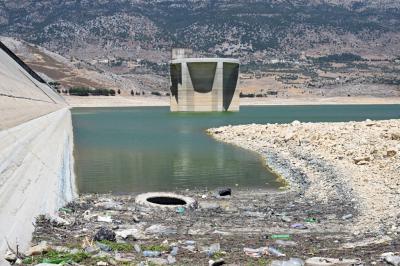After the "to the nation" speech and the press conference of the President of the Republic, what are the main lessons for the end of Emmanuel Macron's term?
Many of Emmanuel Macron's economic announcements during his press conference were already known… What do you take away from it? Tax cuts? Merit-based pay for civil servants?...
The President set the theme of "rearmament" as the preface for this stylistic exercise, a hybrid between the classical general policy speech usually reserved for Matignon and the presidential press conference of old. Hence, this martial terminology was also expected to unfold in the economic field, as the revolutions promised in 2017 have not yet transcended the French economic failure, considering the French grievances about purchasing power, taxation, or imbalances in debt and unemployment. In economic policy, as in chemistry, nothing is lost, everything is transformed, and Emmanuel Macron often reminded the French of ongoing or already announced projects. This is the case with the 2 billion tax cuts targeting the middle classes, postponed to 2025. However, I believe the most important announcements were elsewhere. They concern the issue of simplification and what is intrinsically Act 2 of a growth law, or a prolegomenon to a Macron II law or continuation of the Pacte law. "There is still too much complexity that discourages entrepreneurs, industrialists, merchants, farmers, craftsmen. (...) And we can no longer afford it. That's why I'm asking the government to eliminate standards, reduce deadlines, further facilitate hiring, raise all the thresholds for triggering obligations," said the President of the Republic, calling for "an Act II of a law for growth, activity, economic opportunities." As an economist, I am convinced of the relevance of such an approach: the shock of simplification undertaken by Trump in 2017 in the United States as well as the recent drastic cuts by Milei in Argentina have revealed significant growth potential. As an entrepreneur, I also wish for a simplification of the procedures that take up our time and destroy our business initiatives. The President had set up a committee of business leaders since November to review these obstacles to growth. But during his speech, he seemed to dismiss any big bang of standards, saying instead to start from these concrete cases on the ground, to eradicate "the France of hassles." I had worked deeply on this theme during the 2022 campaign for right-wing candidates (I politically belong to the Republicans family): if a bottom-up, "bottom-up" approach is effective in bringing up concrete cases to be dealt with, it would be illusory to want to solve them one by one. The intertwining of standards is such that the President will collide with the wall of intertwined regulations. I advocate, like Gaspard Koenig in his book "Let's Simplify Our Lives!", to start from the great principles of law, and to prune them in order to have a multiplier effect on the standards: work on a more circumscribed perimeter of the precautionary principle, generalize the principle of subsidiarity, impose a principle of innovation or a right to reasonable deadlines. By capillarity, these changes will spread in all fields: industry, real estate, tech, administrative reform. If this reform is successful, it is 2 additional points of growth over the last 3 years of the five-year term. A fundamental last point: the subject, interministerial and technical, requires for its launch a Mr. or Ms. Simplification.
The demographic issue was addressed by the Head of State. It is both a civilizational and economic issue! The stakes are colossal! What is your point of view?
"A political problem is an economic problem without a solution," said French economist Georges Elgozy. If birthrate has become a political issue that Emmanuel Macron, who comes from the Left, felt obliged to address after six years, it is also because it is primarily an economic issue. In growth theories, economists explain the economic growth of nations by capital, labor, and innovation (the Solow residual, quite mysterious and not always quantifiable). Demographic growth, as shown by episodes of rural exodus or the rise of China, has historically been an important underpinning of growth. Even a country like the USA, for example, still benefits from the demographic dynamism of entire sections of its population, and not just among the latest arrivals. In France, the problem of a declining birth rate is aggravated by two issues. The first is that of the Welfare State, based on generous generational transfers. It assumes, like the pension system, a generational replacement at parity, otherwise its financial balances collapse. We can see that our multiple pension reforms, often temporary, try to compensate for this growing demographic gap between generations... The second issue is the traditionally proposed alternative by some economists, that of recourse to immigration. However, beyond the political issue of the French refusal to continue mass immigration (a reality that has ended up imposing itself on the President, willy-nilly), I have shown in the columns of Valeurs Actuelles that recent immigration in France has worsened the country's financial equation, due to the too low employment rate of our immigrants. The issue of demography is therefore colossal in the short term to restructure the Welfare State and rebalance our economic aggregates (pensions, deficits, ...). However, I would point out two risks: the first is financial, as the state of our public finances makes it perilous to boost birth rates based on aid and assistance. Secondly, recent economic studies show that our developed economies are changing and will no longer be so dependent on demography tomorrow. The development of artificial intelligence and the extension of life expectancy will radically transform the world of work and the sources of economic power, reducing the role of demography. Economic history over the long term also tends to refute this correlation between demography and economic growth, and the 19th century, more demographically dynamic than the twentieth, does not correspond to the same pattern of prosperity.
Emmanuel Macron is clinging to his goal of full employment...? Is it possible?
The very concept of full employment seems to be variable geometry according to economists and countries, which means that Emmanuel Macron is not really taking a risk on this goal. In Anglo-Saxon countries, full employment means 4% unemployment. A few years ago, some French economists like Patrick Artus claimed that given the structural characteristics of our economy, in France full employment meant 7% unemployment...In the initial statements of Ms. Borne, I had understood that the goal was 5%. And in this respect, no, at present, this goal seems distant. After a very slow decline of two points in eight years, unemployment has recently risen again. Anesthetized for two years by aid and the "whatever it takes", it is inexorably resuming a slow rise due to the slowdown in growth. In 2023, France recorded a growth of probably 0.9% with one negative quarter and another at zero. In 2024, the official forecasts, recently downgraded, also predict that we will be below 1%; I do not rule out an intra-annual recession, as evidenced by the deterioration of many indicators, such as PMI indicators, and a final growth of around 0.5% (this is also the new Rexecode forecast). With such growth, no jobs are created. There will then be two and a half years left to reverse the trend, and by then unemployment will probably have stabilized around 8%. In this context, Macron is playing a classic game by announcing a sort of labor law bis, further tightening the conditions for unemployment compensation, or playing on the thresholds in the world of work. We could also have worked on the standardization of employment contracts or the 35 hours... beyond these announcements, there are still potentially important projects in terms of labor law, but the crux of the battle to revive employment lies elsewhere: in the launch of structural reforms on the Welfare State, taxation, production.
At the center of the presidential course, the "civic rearmament", the National Education, the mother of all battles... is it just a question of financial means?
No, the question of the very definition of these policies is just as crucial as their funding. But I would like to remind that there is no watertight separation between these issues. The education of the population is both a civic, cultural, and economic subject, since the level of competence of the workforce also determines the economic performance of a Nation. In this regard, the French have just emerged from the illusion they had over the past twenty years, that of the intellectual magisterium of their country. Beyond a few strong positions in mathematics, internationally, France is no longer perceived as a great scientific nation, and French employees are not necessarily better trained than their European counterparts. From PISA rankings to economic performance, there is, with a hysteresis effect, a continuity in the decline. With most of the negative impact still ahead of us. Economist Gary Becker highlighted the role of this human capital in growth. The second aspect is indeed the funding of this displayed voluntarism in many areas. As we emerge from a period of economic support that was more costly in France than in our European neighbors, our public finances are drained. Debt, at 90% of GDP in 2017, then 100% of GDP in 2019, soared to 111.7% of GDP. Our budgets are still voted at 4 or 5% of GDP, while the rate paid on the debt has skyrocketed with the rise in interest rates. The debt burden cost us nearly 55 billion in 2023, compared to 22 billion for employment or 86 billion for National Education. Therefore, we will have to be ingenious in this civic rearmament, as we will not be able to continue to invest in these areas at the same level as in 2020-2023. But common sense measures are not necessarily the most expensive. Refocusing the school on the fundamentals, teaching republican values in school, does not necessarily cost more, it is mostly about political and cultural voluntarism.
What were the goals of this new presidential intervention? Were the goals achieved? Did Emmanuel Macron not ultimately just launch the presidential election campaign?
It must be noted that there is an institutional problem at the heart of this second five-year term, which weakens any attempt at ambitious reforms: although re-elected mutatis mutandis in a perilous international context, the President did not obtain an absolute majority in the Assembly, with his own majority being heterogeneous and whose contestation will grow as the quinquennium approaches its end... However, Emmanuel Macron did not draw the logical consequences: he should have acted for a more parliamentary evolution of the regime, and build project-based majorities. Instead, the National Assembly is in disarray (under the aegis of Larcher and Retailleau, the Senate shows the way to an exemplary future parliamentarism) and deputies of all persuasions give themselves over to theatocracy instead of helping the country. I call for a return of realism and voluntarism within the political class. This is the sine qua non for undertaking new economic reforms. Emmanuel Macron was right to take control and instill new ambition in the country. The second part of the press conference indeed appeared more partisan, with a form of pre-launch of the Europeans, by setting up the duo with the RN. But the French public cares little about this election, traditionally distant. The campaign will not start before mid-May for our citizens, and the audience ratings (even less than for the presidential wishes...) suggest a disinterest of the French: by speaking too often, the President may have devalued his word. He seems too concerned with the details of public policies, suffocating the rest of the executive. There is something wrong within our institutions that also explains our economic and social underperformance...
What economic measures should be put in place to get the country back on track?
Heir to the center-right and center-left, Emmanuel Macron applies in economics what personalities like Michel Rocard or Alain Juppé have always advocated. The latter spoke of reforms by ratchets: contrary to the rhetoric of his book "Revolutions," the President advances step by step with successive reforms of work, taxation... Bruno Le Maire in his program for the primary of 2016 had also adopted this technocratic approach. His presence in Bercy - but also his exhaustion - seems logical. I understand this approach and respect it as an economist, but it must be noted that it does not work in France. Historically, the country has never been able to reform itself continuously and slowly over several years. On the contrary, in six months in 1958, with Rueff, Baumgartner, and Pinay, everything was settled, the rebound was triggered as Franz Olivier Giesbert says. Today, despite Emmanuel Macron's voluntarism, the major economic aggregates of France have hardly moved in six years: weak average growth, unemployment well above the European average, taxation still at 46% of GDP, uncontrollable public spending at 58% of GDP. If France's attractiveness has improved, its competitiveness has deteriorated. The deindustrialization and the widening of the trade deficit have not yet been stopped. Therefore, we must bet on systemic reforms and the abandonment of certain totems. On labor, in addition to the latest proposals of the President, it is necessary to allow companies that wish to deviate from the 35-hour framework, by defiscalizing and desocializing 100% of overtime for executives. At the level of the productive apparatus, I would recommend resuming the reduction of production taxes, halving them and setting up a temporary super-depreciation in 2025 on the purchase of equipment: the extra cost of activity and tax revenues related to this reduction will pay for ¾ of the cost of the reform. Reindustrialization also involves diversifying sources of financing, by establishing a mandatory collective capitalization component for our pensions, the only solution to save our pension system in the long term... Finally, to reduce public spending and decrease our debt, the two projects of simplification and the scope of the State are indispensable. The announcements on merit-based remuneration for some civil servants fall into this last category, but we must go much further to hope to control public spending. We need to reflect on the real missions of the State, and where public service is a must.
Please post your comments on:
[email protected]
 Politics
Politics













